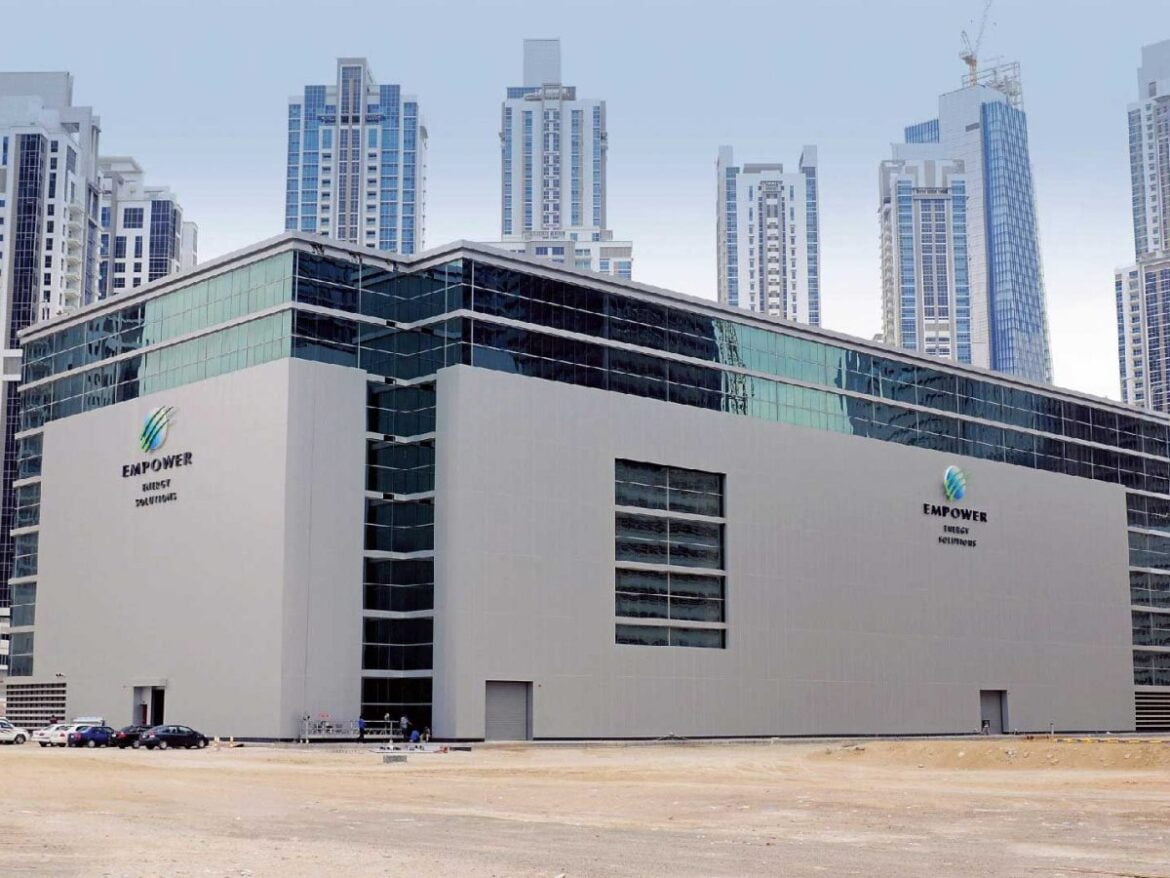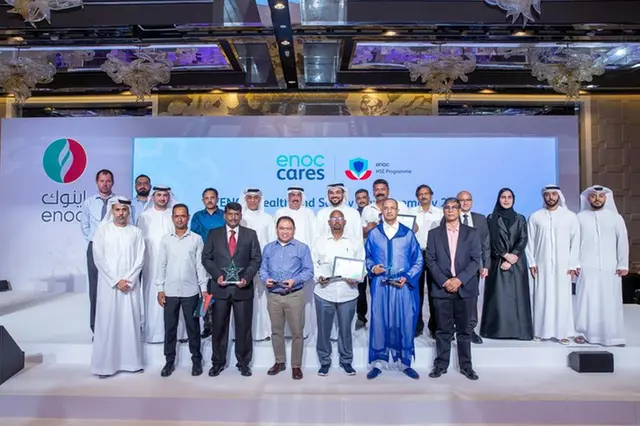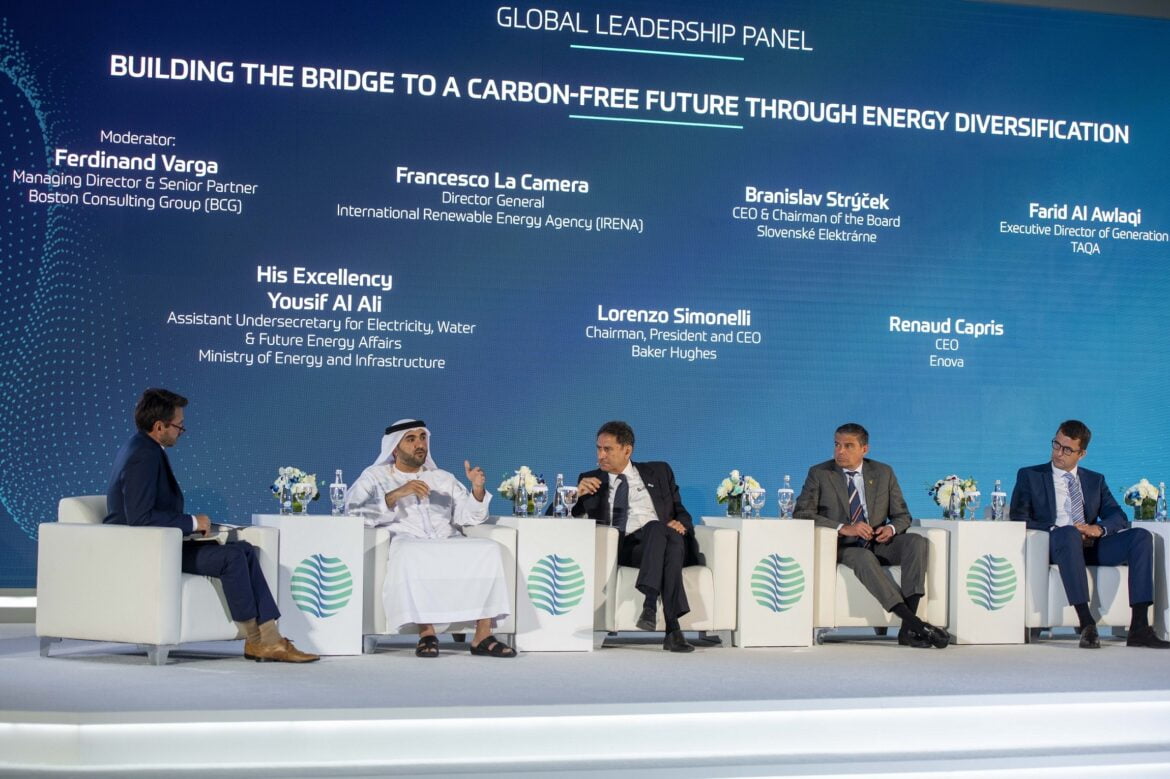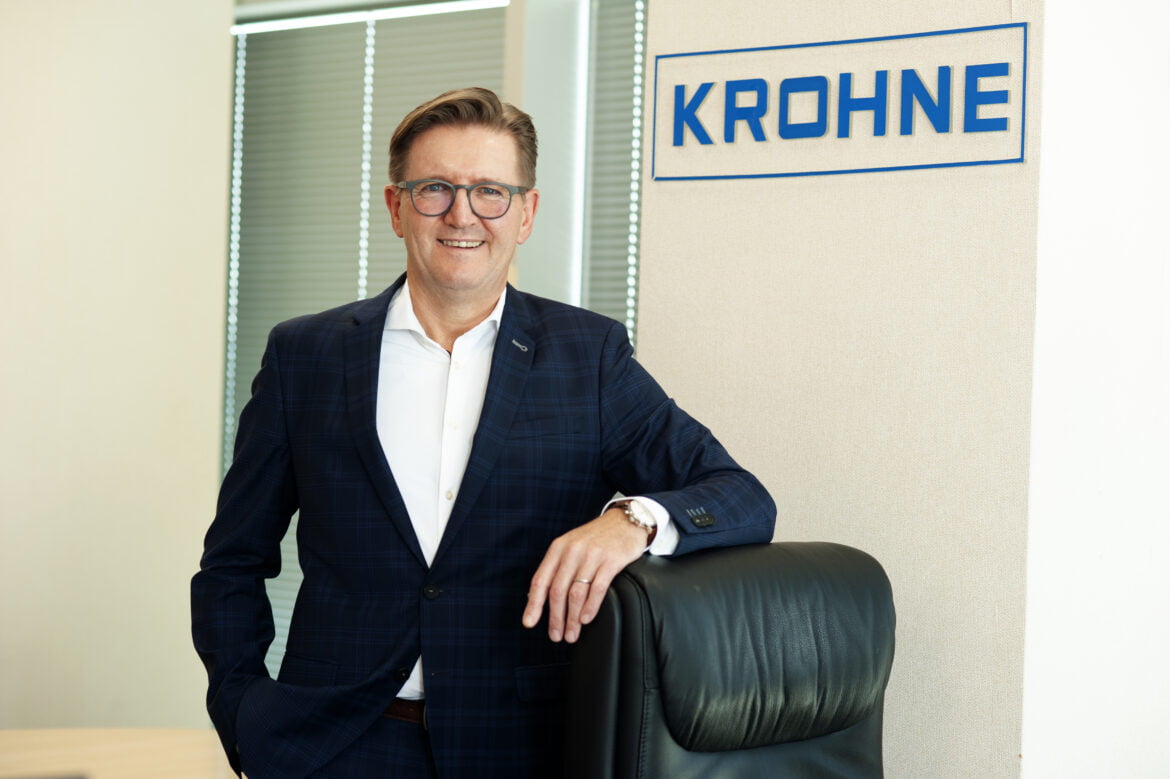Monthly Archives
May 2023
Octavia Energy and Calvalley Petroleum donate USD $300,000 to the UN’s crowdfunding
written by Mohammad Ghazal
Oil companies Octavia Energy and its subsidiary, Calvalley Petroleum, today announce they are jointly donating USD $300,000 towards the campaign to offload crude oil from the decaying storage tanker, FSO Safer, and prevent an ecological and humanitarian catastrophe in the Red Sea.
The Safer FSO has been moored at the Ras Isa Terminal, eight kilometers off the West coast of Yemen since 2018, when offloading ceased due to the conflict that has engulfed the country. The FSO has not been inspected nor maintained since 2015, leading to serious concerns regards its integrity. The vessel, laden with over 1 million barrels of crude oil, is of risk of leaking crude due to hull fracture or an explosion due to a build-up of flammable gasses.
An oil spill from the FSO Safer would be a major humanitarian and ecological disaster which could severely impact delicate ecosystems, fishing areas, industries and communities along the Yemeni Red Sea and neighbouring countries including Saudi Arabia, Djibouti and Eritrea. It is anticipated that the damage to marine environments could be significantly greater than that caused by the Exxon Valdez in Alaska in 1989.
The human fallout would be severe. Contamination from an oil slick could shut down nearby ports and impact many Yemeni coastal communities that already rely heavily upon humanitarian aid for safe delivery of essential supplies of aid and food. A significant spill would also devastate the regional, staple fishing industry and impede global shipping lanes.
The cost of a clean-up of an oil spill of the magnitude possible from FSO Safer has been estimated to be as great as $20 billion.
In comparison, the emergency phase of the salvage operation will cost $129 million and an additional $19 million is required for the second phase. Andrew Mitchell, the British Foreign minister, together with the Dutch Minister for Foreign Trade and Development Cooperation, are co-hosting an international pledging event to attempt to secure the final tranche of funding for the UN-coordinated operation.
So far, most of the money has been raised from governments. The Octavia Energy and Calvalley Petroleum donation, together with $1.2m from the HSA Group and including those from the International Association of Oil and Gas Producers and the Trafagura Foundation, represent the private sector contributions that have pledged to date. The global public has also contributed through a crowdfunding campaign.
Darran Lucas, spokesman for Octavia Energy and Calvalley Petroleum commenting on the pledge, says: “This donation illustrates our commitment to Yemen and the Yemeni people. The two companies continue to invest heavily in the local economy, creating jobs and helping the community through an incredibly difficult period. We encourage other companies from the private sector to also pledge donations for the FSO Safer salvage operation.”
Darran is confident that, with the vital COP28 climate change talks due to be held in nearby Dubai later this year, others from the region will donate to the FSO SAFER campaign. Darran adds : “We must do everything we can to accelerate a successful salvage operation and prevent a spill that could destroy the Red Sea coastal environment and a desperately fragile Yemeni economy. We cannot sit by and let this happen.”
Emirates Central Cooling Systems Corporation, the world’s largest district cooling services provider, which is listed on the Dubai Financial Market (DFM), has today reported its first quarter 2023 consolidated financial results, recording quarterly revenue of AED 494 million and EBITDA of AED 284 million.
Exceptional growth driven by fundamental drivers
For the last twelve months, EMPOWER’s consolidated revenue was AED 2.82 billion (Apr22 to Mar23) compared to AED 2.53 billion (Apr21 to Mar22), showing an impressive growth of 11.5%. The EBITDA for the similar periods was AED 1.40 billion (Apr22 to Mar23) compared to AED 1.26 billion (Apr21 to Mar22), with a growth of 11.1%.
EMPOWER’s first quarter 2023 revenue and EBITDA grew by 6.0% and 8.2% respectively. For the same period, EMPOWER’s pro forma Net Profit grew by 5.7% to AED 191.6 million. This pro forma Net Profit comparison adjusts for pre IPO leverage to show comparable quarterly performance. On an absolute net profit basis, EMPOWER reported a net profit of AED 167.4 million.
EMPOWER’s exceptional growth during the first quarter of 2023 is attributed to a significant rise in demand for its services across various regions of Dubai, particularly from newly added mixed-use projects to Empower’s portfolio, and a noteworthy surge in production and operational capacity during the first quarter of this year.
The growth of 2023 is primarily fueled by the rise in recurring and sustainable revenues resulting from the boom in various economic sectors and markets in Dubai, notably the real estate sector, which is the mainstay of the company’s business.
Select Quarterly Updates
During the first quarter of 2023, Empower entered into several exclusivity agreements including concessions agreements with major real estate development projects. In February 2023, the company signed an agreement with the Dubai Maritime City (DMC) to provide its projects district cooling services with a capacity exceeding 63,000 refrigeration tons (RT), and in March 2023, Empower signed an agreement with Sobha Real Estate to provide 17,000 RT district cooling services for the Sobha Hartland project. Moreover, the company signed agreements for several other buildings in various parts of Dubai, including Business Bay, Jumeirah Village Circle, Dubailand, Dubai Studio City, DIFC, Jumeirah Lake Towers, and Barsha Heights, the total cooling capacity of these agreements reached 24,000 RT. Furthermore, Empower started operating its new district cooling plant in Dubailand with a total production capacity of 47,000 RT, which will provide cooling services to residents of the Dubai Land Residence Complex (DLRC).
H.E Ahmad bin Shafar, CEO of Empower, said: “The results of the first quarter of this year consolidate the company’s position on more than one level, including by confirming its leadership in the global district cooling markets, and highlighting its superior ability to meet the demand for district cooling services with standards that exceed its global counterparts, regardless of the size, time or location. The results also reinforce Empower’s strong and effective presence and its capability to attract investors to the Dubai Financial Market, motivated by their confidence in the company’s strong base to continue achieving growth in terms of sustainable revenues and profits.
Bin Shafar stressed that Empower is determined to continue to grab investment opportunities in the market and to maintain its outstanding performance to ensure rewarding and sustainable returns for shareholders. He concluded that the company will continue investments in its portfolio of assets and infrastructure to serve the growing demand in the region’s district cooling market.
ENOC Group celebrates safety and health at work with outstanding 2022 performance
written by Mohammad Ghazal
In celebration of the World Day for Safety and Health at Work, ENOC Group reaffirmed its commitment to putting the health, safety and wellbeing of its employees and partners at the forefront of its operations.
The Group, which recognised 56 of ENOC Segments, business unit’s and employees for their significant contribution towards health and safety, highlighted its outstanding HSE performance in 2022.
The HSE Excellence Awards recognised exceptional performance in health and safety under 11 categories including Best Performing Segment Award, Best performing Corporate Department Award, Best Performing Business Unit Award, Partner Recognition Award, Best HSE Innovation/ Project, Best OH /Wellness Program, Best Environment Project, HSE Heroes Award, Best Risk Management Coordinator, Best Business Continuity Management Champion, and HSE Champion Award.
His Excellency Saif Humaid Al Falasi, Group CEO at ENOC, said, “We always affirm that our employees are our most important and valuable asset. From this perspective, we give top priority to health, safety, and environment policies in all our business sectors, and we are constantly keen to adopt the latest government policies and standards in this regard.”
“Recognising our teams who scored the highest results in terms of health, safety, and environment is an affirmation of our unremitting efforts to ensure the health and safety of all our employees, customers, and assets, and our commitment to instilling a work culture based on the foundations of safety and efficiency.”
The Group’s Lost Time Injury Frequency Rate (LTIFR) reduced from 0.51 in 2016 to 0.05 in 2022, indicating a reduction of 98% LTIFR in addition to a 90% reduction in Lost Time Injuries as compared to the same period. The Group also successfully conducted safety campaigns for its contractors in five languages, which saw 95% contractors within business units in attendance.
Over the course of the year, ENOC’s Fire Training and First Aid Centre was recognised as a Government of Dubai approved First-Aid training facility and 3,682 employees completed various courses on firefighting training.
The Group also launched several occupational health and wellbeing campaigns, conducted a safety culture survey with its employees, and completed HSE audits in line with its continued commitment to health and safety.
Held under the patronage of His Highness Sheikh Khaled bin Mohamed bin Zayed Al Nahyan, Crown Prince of Abu Dhabi and Chairman of the Abu Dhabi Executive Council, the second edition of the World Utilities Congress, hosted by Abu Dhabi National Energy Company (TAQA), will take place in Abu Dhabi from the 8-10 May, 2023.
Organised by dmg events, the congress will be supported by the UAE’s Ministry of Energy & Infrastructure, Abu Dhabi Department of Energy (DoE), Department of Culture and Tourism – Abu Dhabi (DCT Abu Dhabi) and Emirates Nuclear Energy Corporation (ENEC).
As the UAE prepares to host COP28 later this year, the 2023 World Utilities Congress will galvanise the utilities sector’s response to net-zero and the critical role it plays in supporting the decarbonisation of industry. The event will provide an essential platform to assess the progress that has already been made, and lay the groundwork for the critical conversations that will take place at COP.
Centred on the theme of balancing energy security with affordability and net-zero goals, the exhibition and conference will convene key international stakeholders – including policymakers, business leaders, investors, and innovators – for an incisive discussion on how the utilities sector can drive the change required to meet major climate targets.
Over three days, the World Utilities Congress will welcome Energy Ministers, over 10,000 industry professionals, 1,000 conference delegates, 250 expert speakers and 150 exhibiting companies, from across the entire utilities value chain.
This includes EDF, Engie, Baker Hughes, Huawei, ABB, Westinghouse, Tabreed, Ansaldo Energia, Exxon Mobil, Schneider Electric, and Abu Dhabi Sewerage Services, who will showcase their industry-leading products, innovations and latest technology solutions in power generation, transmission and distribution, nuclear energy, water management and desalination.
During the strategic and technical Conferences, government ministers, policymakers, and utilities industry leaders will convene to share insights, strategies and innovative solutions to the industry’s major challenges: balancing reliability and affordability with environmental sustainability. The Technical Committee has been Chaired by Dr. Afif Saif Al Yafei, Chief Executive Officer of TRANSCO, TAQA’s wholly owned infrastructure subsidiary.
Sponsored by Atkins Global, Urenco, and Westinghouse, the free-to attend Nuclear Energy Forum will focus on the role of nuclear energy in achieving net-zero and energy security, as well the new and emerging technologies shaping the nuclear industry.
Jasim Husain Thabet, Group CEO and Managing Director of TAQA, commented: “TAQA Group is proud to welcome the global utilities sector to the UAE once again for the World Utilities Congress. This global gathering with our peers is more important than ever as we approach COP28, to bring together all players across the utilities value chain to address the urgent needs of climate change and decarbonisation, whilst balancing continued energy security and affordability.
As the low carbon power and water champion of Abu Dhabi and beyond, I would like to thank His Highness Sheikh Khaled bin Mohamed bin Zayed Al Nahyan, Crown Prince of Abu Dhabi and Chairman of the Abu Dhabi Executive Council for his leadership and ongoing support of the Congress and we very much look forward to building on the success of last year’s event, and we believe this edition will play an even more crucial role in enabling industry leaders and key policymakers to cooperate and form productive partnerships.”
Christopher Hudson, President of Global Energy, dmg events, commented: “We are very excited about the return of the World Utilities Congress this May. Abu Dhabi is a global energy and logistics hub and a gateway to the growing economies of the MENA region and Asia, making it the perfect host city for this event.
Krohne delivers a sustainable experience at World Utilities Congress 2023
written by Mohammad Ghazal
KROHNE, one of the leading global manufacturers of process instrumentation, announces its presence at World Utilities Congress 2023, an increasingly important platform in the global arena of power, water and nuclear discussions. Hosted by TAQA Group under the patronage of His Highness Sheikh Khaled bin Mohamed bin Zayed al Nahyan, Crown Prince of Abu Dhabi and Chairman of the Abu Dhabi Executive Council. KROHNE has a long heritage in supporting automation and process control in this space through precision engineered measurement equipment and technology and this year is no different. From 8th to 10th May 2023, held at ADNEC, Abu Dhabi, United Arab Emirates, the event provides an excellent opportunity for public and private sector stakeholders to experience and engage with the latest and greatest the industry has to offer.
This 2nd Congress finds itself importantly positioned between COP27 last year and this year’s COP28 to be held in the UAE at Dubai’s Expo City from 30th November. Sustainability, ESG considerations and the actions public and private sectors need to take sooner rather than later are high on the agenda. With this front of mind, you will be able to meet the team in hall 7 at stand 7740 close to the Live Stage and exclusive access Utilities Club – in order to save on considerable wastage normally associated with trade shows, KROHNE is reusing the exhibition stand in partnership with Al Fajer. The EcoVadis-certified KROHNE team has also decided to remove paper collaterals and brochures in favour of bespoke discussions and demonstrations backed up by material accessible via USB drive or bespoke email.
Should you still wish to visit and leave with a reminder of KROHNE’s 100+ year-old engineering expertise, there are several ecologically sound giveaways available to interested customers from our equally EcoVadis-certified partner Jasani, including: Impact Aware™ recycled cotton baseball caps, water bottles developed in support of water.org and anti-microbial notebooks made from recycled paper. In addition to this step, the team will once again be modelling their stylish-yet-sustainable polo shirts, provided by DGRade, a Dubai-based eco-preneur that fashions material from 100% plastic bottles.
In addition to the live demonstrations on-stand, two members of the team will be appearing on stage with key players across the sustainable and renewable landscape:
- Ad Gelderblom, Global Water and Waste Water Industry Expert, will be appearing on the Live Stage on Monday 8 May as part of “Water Day” discussing upcoming trends and technologies impacting water management today.
- Jonathan Ashton, Head of Marketing and Communications, will be moderating a panel as part of the Nuclear Energy Forum on Tuesday 9 May entitled “A new world order: How are the new sustainability dynamics impacting the nuclear supply chain?”
Frank Janssens, Vice President, KROHNE Middle East and Africa, said: “KROHNE Group has been in operation for over a century and is proudly built on key values we still cherish today, such as our pioneering capabilities within a family-style environment. At World Utilities Congress you have the chance to experience our creativity in finding the best solutions to problems with our innovative thought process and precision engineered product portfolio. I encourage you to engage directly with our experts at this crucial platform, we feel we are able to deliver an excellent exhibition experience without restriction and, even better, without filling recycling bins with unnecessary printed material, letting people focus on what matters – building a better tomorrow through efficient measurement solutions driving towards net zero.”
Ministry of Climate Change and Environment hosts Cement and Concrete Decarbonisation Workshop for the construction sector
written by Mohammad Ghazal
The Ministry of Climate Change and Environment hosted the Cement and Concrete Decarbonisation Workshop event to tackle the critical contributors to the UAE’s carbon footprint. Embodied emissions, associated with the manufacturing, transportation, and construction of building materials, account for 10% of the country’s total CO2 emissions.
The Cement and Concrete Decarbonisation Workshop was organised by the Ministry of Climate Change and Environment, in light of the UAE’s Year of Sustainability 2023 and the COP28 conference later this year, to create a comprehensive model for carbon removal across various vital sectors.
The workshop marks the first time experts across the supply chain – including developers, consultants, cement and concrete producers, project buyers, and government officials convene to share their ambitions for achieving a net-zero roadmap. Over 100 participants attended the one-day event, which was held at the Ministry of Climate Change and Environment.
His Excellency Eng Essa Al Hashmi, Assistant Under-Secretary for Sustainable Communities and Acting Assistant Under-Secretary for Green Development and Climate Change at the Ministry of Climate Change and Environment, emphasised the critical importance of reducing carbon emissions to enable the UAE to achieve net-zero emissions by 2050. This aligns the UAE’s climate commitments and its efforts to help the world limit global warming to 1.5 degrees Celsius.
HE Essa Al Hashmi said, “This year, the UAE will host the 28th Conference of Parties (COP28), which is a global platform aimed at addressing the urgent issue of climate change. As such, we must ensure that the UAE is at the forefront of decarbonisation efforts across all sectors. Through this workshop and other efforts, we seek to build an integrated mechanism that brings together all stakeholders to work on carbon removal from various vital sectors, in order to have a tangible impact on the sustainability of those sectors in the future and not to cause further climate and environmental effects.”
Achieving net-zero emissions will require significant efforts from all sectors, including the construction and real estate industries. The event highlighted the importance of adopting low-carbon technologies and processes, as well as investing in research and development to create innovative solutions that can reduce the carbon footprint of the cement and concrete sector.
In her opening speech, Muna Alamoodi, Director of Climate Change Department at the Ministry of Climate Change and Environment commended all stakeholders in the supply chain, from cement producers, concrete manufacturers, designers, developers, and the government, for their efforts to mitigate embodied emissions.
She also urged the private sector to explore many options, including low-carbon cement, process optimisation, fuel diversification, distributed generation, and generating new demand for green products. He invited participants to join the Ministry of Climate Change and Environment’s climate pledge.
Furthermore, Alamoodi highlighted the role all stakeholders can and must play in expediting the transition to decarbonisation.
Alamoodi said: “Whether it is promoting sustainable building practices, specifying low-carbon materials, policy and regulatory interventions, or others, we all have a part to play. We need your support in understanding these options and how we can accelerate decarbonisation across the value chain.”
Later in the day, participants from related industries were divided into groups for breakout sessions to discuss and identify practical solutions for decarbonising embodied CO2 in buildings and infrastructures. Participants then suggested a cement and concrete decarbonisation roadmap for COP28.
The cement and concrete industries are crucial pillars of the UAE’s economy, and the participants agreed it is crucial that the sector to work on developing and introducing environmentally-friendly products that reduce environmental impact and pave the way for a more sustainable future. Future cities require the use of sustainable cement and concrete in building materials, through the collaboration of all stakeholders in the supply chain to achieve this goal.
In March, the Intergovernmental Panel on Climate Change (IPCC) published its so-called “synthesis report,” the final section of its sixth assessment report (AR6). Based on thousands of peer-reviewed articles by hundreds of scientists from around the world, the report provides a comprehensive review of the impact of climate change and what the world must do to limit global warming to 1.5° Celsius.
The good news is that, according to the IPCC, “feasible, effective, and low-cost options for mitigation and adaptation are already available.” But ensuring a “livable and sustainable future for all” also requires a far-reaching transformation and the political will to take bold action.
IPCC reports are invaluable. By bringing science to climate negotiations that are otherwise dominated by political and economic considerations, the reports both inform and promote accountability. Often totaling over 1,000 pages, each report includes a shorter summary for policymakers that member states must officially approve. This process enables government representatives and observers to comment on incoming drafts while still allowing scientists to refuse suggestions that challenge the integrity of their research. During the approval process, however, sentences may be strengthened, softened, or even removed from the final draft.
The latest report warns that extreme weather events are becoming more frequent and intense than previously predicted, while global action has been far slower than expected. Every fraction of a degree matters, and, at the current rate of greenhouse-gas emissions, the world is barreling toward a 3.5°C increase by 2100 – with devastating consequences for humanity and the planet.
Barring urgent action to halve current greenhouse-gas emissions by 2030, global warming is “more likely than not” to reach 1.5°C above pre-industrial levels within the next decade, the report warns. But if policymakers act immediately, they could still prevent ice sheets from melting, permafrost from thawing, and ecosystems from collapsing, thereby saving countless lives.
To change course, we must address the root cause of climate change: “unsustainable energy use, land use and land-use change, lifestyles and patterns of consumption and production across regions, between and within countries, and among individuals.” Governments could choose many feasible and cost-effective steps to reduce emissions. The most promising are those that integrate rights-based approaches that embody meaningful public participation in decision-making, gender equity, biodiversity protection, human rights, and the rights of indigenous peoples. The IPCC report finds that policies that promote equity, fairness, and climate justice “lead to more sustainable outcomes” and “reduce trade-offs, support transformative change, and advance climate-resilient development.” Simply put, fairer climate policies receive greater support and are therefore more effective.
The most effective way to reduce emissions is to phase out fossil fuels and rapidly shift to renewable energies, particularly solar and wind energy. But the report also identifies important economy-wide and demand-side measures, such as “sufficiency” approaches, circular material flows, energy efficiency, sustainable consumption and production, widespread public transportation, and agricultural practices grounded in “sustainable land-management approaches.”
Behavioral changes, such as adopting a “sustainable healthy diet,” reducing the use of appliances, and forgoing private cars in favor of walking and cycling, could also help reduce emissions. As the IPCC report notes, the top 10% of households with the highest per capita emissions account for 34-45% of consumption-based global household emissions, whereas the bottom 50% contribute just 13-15%.
Curiously, despite the documented environmental benefits of reducing meat consumption in favor of healthier diets, both the summary and the full report include no mention of meat or dairy and relegate the phrase “plant-based” to a footnote.
Likewise, the report dropped a hopeful and high-confidence sentence relating to urgent, rapid, feasible, and equitable near-term policies to address climate change and improve human well-being that are already available to scale. This caused an outcry among many observers and a range of states seeking to retain the scientific finding. However, after hours of discussion, the sentence remained out; the words “urgent,” “rapid,” and “available to scale” appeared too sensitive for universal approval, highlighting the tension between science and political will.
This tension was evident at the three sessions that preceded the approval of the sixth assessment report. Developing countries expressed anger at developed countries for not doing enough, despite their historical responsibility for climate change – and despite their promises to provide financing and technology transfers to facilitate adaptation efforts. Meanwhile, the language referring to fossil-fuel reduction, renewable-energy cost-efficiency, and equitable renewable-energy ownership was weakened, reflecting advocacy by those seeking to maintain fossil-fuel extraction.
As a result of insufficient global political will, the summary emphasizes net-zero terminology over the need for a rapid and real reduction of greenhouse-gas emissions. This could lead less-informed policymakers to conclude that we can just magically plant trees and carry on as we have so far. Moreover, geoengineering solutions such as carbon dioxide removal and carbon capture and storage (CCS) have been given more space than renewable energies, despite research showing that deploying these technologies carries enormous environmental risks. In addition, compared to rapid renewable-energy transitions, CCS maintains fossil-fuel dependence, is more expensive, not available to scale, and less effective in reducing emissions. While the summary mentions some of these risks, it buries them in a footnote.
The IPCC’s reports remain an indispensable resource for informing people about the impact of climate change. But readers seeking a clear assessment of the current efforts to reduce global emissions and ensure that we cap global warming at 1.5°C should skip the summary and read the full report instead.
By Lindsey Fielder Cook
Copyright: Project Syndicate, 2023.
www.project-syndicate.org













